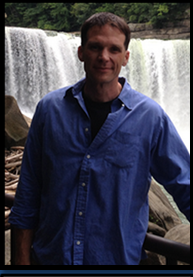by David Chrisinger
As far as most traditional societies are concerned, being a warrior was a noble and honorable thing. For men especially, being a warrior was the highest of statuses—and rightfully so.
This word—“warrior”—has gotten a lot of play in the media and in the veteran community since the Global War on Terror began. If you pay attention, you’ll see headline after headline referring to post-9/11 veterans as warriors, regardless of their branch, rank, MOS, etc. And in terms of non-profit organizations that serve veterans, we have the Wounded Warrior Project, the Warrior Brotherhood Veterans Motorcycle Club, Homes for Wounded Warriors, K9s for Warriors, Connected Warriors, No Barriers Warriors, Hope for Warriors, Operation Warrior Wellness, and so on.
I wonder, though, whether this word is going the way of “hero”—a word that has, through overuse, lost most of its original meaning.
Dr. Charles Hoge has worked with thousands of post-9/11 veterans and wrote a valuable book about transitioning veterans titled Once a Warrior—Always a Warrior. He says that any service member, veteran, government worker, or contractor who has ever deployed to a war zone is a warrior—that they have “warrior tendencies” that will need to be refined as they transition back into civilian life.
Dr. Edward Tick has also worked with thousands of veterans—mostly Vietnam-era veterans—and wrote a similarly valuable book about war and coming home titled War and the Soul. He says that a veteran of war does not become a “true warrior” merely for having been in combat. Instead, he says that a veteran does not become a warrior until they:
- Learn to carry their war skills in mature ways;
- Exercise restraint;
- Set right their life again;
- Discipline the violence within themselves;
- Prioritize protecting life over destroying it;
- Serve their nation in peace as well as in war making;
- Use force only when they have absolutely no other choice;
- Use their influence to dissuade their people from suffering the scourges of war unless absolutely necessary; and
- Use the fearlessness they have developed to help keep sanity, generosity, and order.
“The ideal warrior is,” Tick writes, “assertive, active, and energized. He or she is clear-minded, strategic, and alert. A warrior uses both body and mind in harmony and cooperation. A warrior is disciplined. A warrior assesses both his own resources and skills and those arrayed against him. A warrior is a servant of civilization and its future, guiding, protecting, and passing on information and wisdom. A warrior is devoted to causes he judges to be more important and greater than himself or any personal relationships or gain. Having confronted death, a warrior knows how precious and fragile life is and does not abuse or profane it.”
So what should we call those who haven’t yet made this long and difficult journey?
According to Robert Moore and Douglas Gillette, authors of King, Warrior, Magician, Lover: Rediscovering the Archetypes of the Mature Masculine, veterans who have not ascended to warrior status are considered “shadow warriors,” characterized by:
- A lack of control of aggression,
- Insensitivity to relatedness,
- Desire for vengeance,
- Enjoyment of carnage and cruelty,
- Scorn toward the vulnerable,
- Hostility toward the feminine and everything “soft,” and
- Compulsive and workaholic tendencies.
Which do you think we need more of today? Warriors? Or shadow warriors? Do we need one so that the other can exist?
There’s no doubt that we are living in some tumultuous times. We will, I fear, always need “rough men” ready to “do violence” to protect those sleeping peacefully in their beds, but what we also need—perhaps more than ever—are true warriors who know the cost of war and who are willing to bear witness to it, who wish to protect and nurture, and who can serve fearlessly to help alleviate human suffering here at home.
Easier said than done, I know, but no one to my knowledge has ever said coming home from war would be easy.
To start the process of becoming a “true warrior,” according to Tick, veterans must accept what has happened to them and “find the depth of character to negotiate” their resulting resentment—to grieve their “lost ideals and innocence, to say yes to new difficulties, to live for [themselves] and all their dead comrades, to make meaning out of the entire matrix.”
Until and unless veterans undertake such a journey, they will remain stuck in a shadow world of loneliness and bitterness.
What do you say? Are you ready to become a true warrior? I sure hope so. We need you.
(Featured Image: Steve Beales / Band of Brothers / The Journal of Military Experience, Vol. 2)








